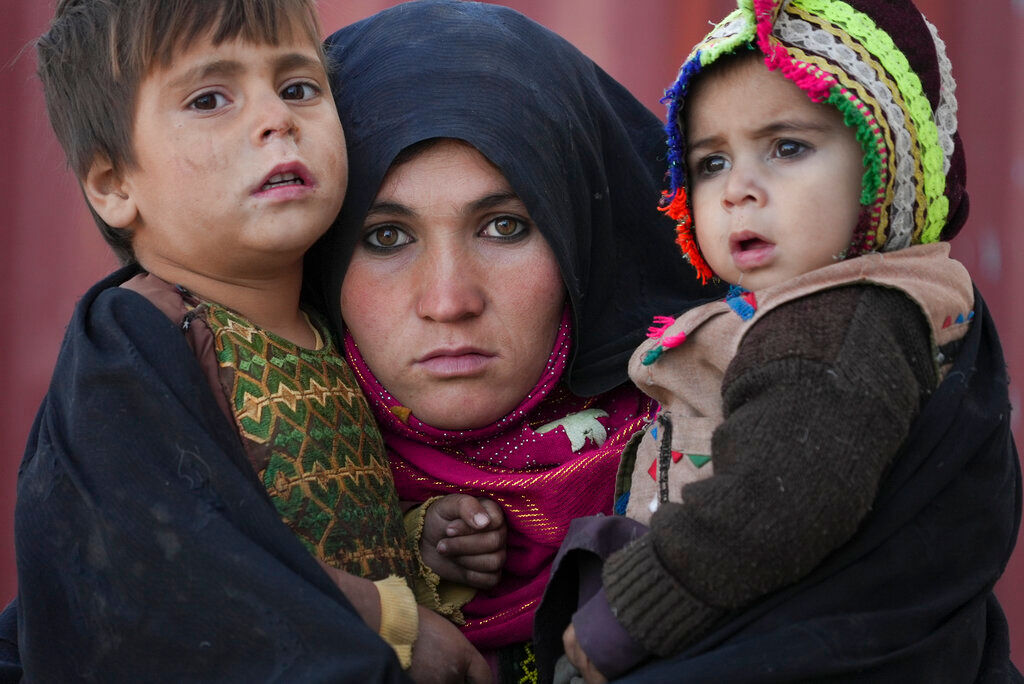In a sprawling settlement of mud brick huts in western Afghanistan housing people displaced by drought and war, a woman is fighting to save her daughter.
Aziz Gul’s husband sold their 10-year-old into marriage without telling his wife, taking a down-payment so he could feed his family of five children. Otherwise, he told her, they would all starve. He had to sacrifice one to save the rest.
Also read: Taliban now bans display of female mannequin heads in shops and music in cars
Many of Afghanistan’s growing number of destitute people are making such desperate decisions as their nation spirals into a vortex of poverty.
Afghanistan’s aid-dependent economy was already teetering when the Taliban seized power in mid-August amid a chaotic withdrawal of U.S. and NATO troops. The international community froze Afghanistan’s assets abroad and halted funding, unwilling to work with a Taliban government given its reputation for brutality during its previous rule 20 years ago.
Also read: Immigrants are helping Afghan refugees start a new life in the US
The consequences have been devastating for a country battered by war, drought and the coronavirus pandemic. State employees haven’t been paid in months. Malnutrition stalks the most vulnerable, and aid groups say more than half the population faces acute food shortages.
“Day by day, the situation is deteriorating in this country, and especially children are suffering,” said Asuntha Charles, national director of the World Vision aid organization in Afghanistan, which runs a health clinic for displaced people near the western city of Herat. “Today I have been heartbroken to see that the families are willing to sell their children to feed other family members.”
Arranging marriages for very young girls is common in the region. The groom’s family pays money to seal the deal, and the child usually stays with her parents until she is at least around 15. Yet with many unable to afford even basic food, some say they’d allow prospective grooms to take very young girls or are even trying to sell their sons.
Also read: In pics: Taliban’s Afghanistan faces economic ruin, harsh winter
Gul, unusually in this deeply patriarchal, male-dominated society, is resisting. Married off at 15, she says she would kill herself if her daughter, Qandi Gul, is taken away.
When her husband told her he had sold Qandi, “my heart stopped beating. I wished I could have died at that time, but maybe God didn’t want me to die,” Gul said, with Qandi by her side peering shyly from beneath her sky-blue headscarf. “Each time I remember that night…I die and come back to life.”
Her husband told her he sold one to save the others, saying they all would have died otherwise.
Also read: Taliban government dissolves election commissions in Afghanistan
“Dying was much better than what you have done,” she said she told him.
Gul rallied her brother and village elders and with their help secured a “divorce” for Qandi, on condition she repays the 100,000 afghanis (about $1,000) her husband received. It’s money she doesn’t have.
Her husband fled, possibly fearing Gul might denounce him to authorities. The Taliban government recently banned forced marriages.
Gul says she isn’t sure how long she can fend off the family of the prospective groom, a man of around 21.
Also read: Explosion outside Kabul passport office; reports suggest car bomb
“I am just so desperate. If I can’t provide money to pay these people and can’t keep my daughter by my side, I have said that I will kill myself,” she said. “But then I think about the other children. What will happen to them? Who will feed them?” Her eldest is 12, her youngest – her sixth – just two months.
In another part of the camp, father-of-four Hamid Abdullah was also selling his young daughters into arranged marriages, desperate for money to treat his chronically ill wife, pregnant with their fifth child.
Also read: Changing climate parches Afghanistan, exacerbating poverty
He can’t repay money he borrowed to fund his wife’s treatments, he said. So three years ago, he received a down-payment for his eldest daughter Hoshran, now 7, in an arranged marriage to a now 18-year-old.







